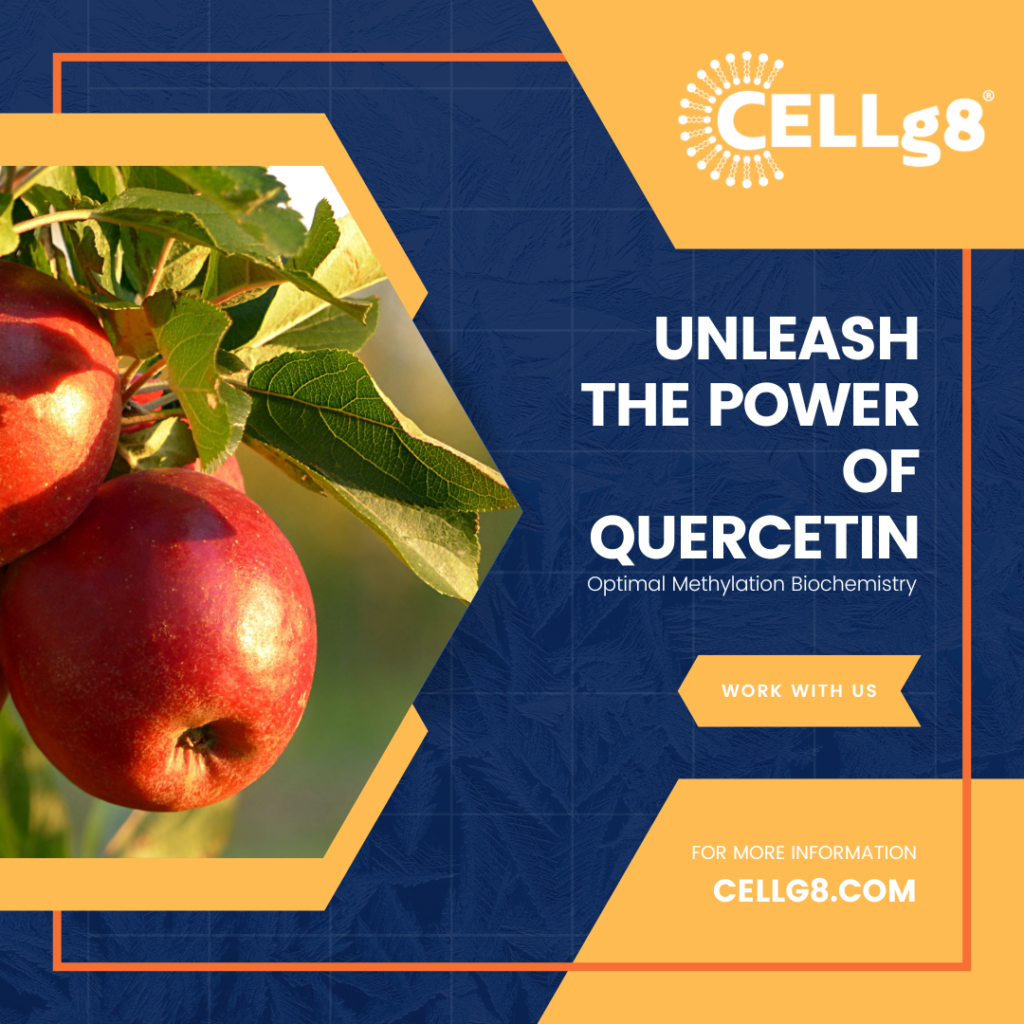Quercetin is a flavonoid that plays a role in methylation biochemistry. It is a natural support to the antioxidant system and anti-inflammatory compound found in a variety of fruits, vegetables, and tea.
Quercetin has been shown to have an inhibitory effect on the activity of enzymes that catalyze the methylation and demethylation of DNA, such as DNA methyltransferases (DNMTs) and histone deacetylases (HDACs), which can affect the expression of genes.
Quercetin has also been found to interact with the methylation cycle by inhibiting the enzyme methionine synthase (MS) which is responsible for the conversion of homocysteine to methionine, and thus it can affect the availability of methyl groups for methylation reactions.
References
- https://www.ncbi.nlm.nih.gov/pmc/articles/PMC7354546/
- https://www.ncbi.nlm.nih.gov/pmc/articles/PMC6879467/
- https://www.ncbi.nlm.nih.gov/pmc/articles/PMC7163664/
- https://www.ncbi.nlm.nih.gov/pmc/articles/PMC4997693/
- https://www.ncbi.nlm.nih.gov/pmc/articles/PMC7354546/


